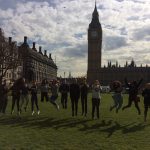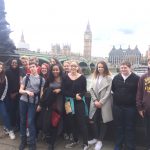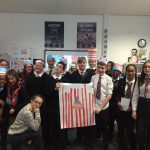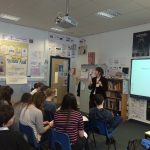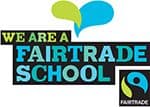S3 Modern Studies
Course Overview
Learning Modern Studies helps to create and develop informed, active citizens who are able to compare their world with other societies and cultures. The study of Modern Studies aims to provide pupils with an awareness of the social and political issues on a national and international scale. It is an excting and fast moving subject and a variety of topics are studied as part of the Curriculum for Excellence ‘People in Society’.
International Issues
Migration
Within this unit, pupils will have the opportunity to investigate and develop an understanding of the political, social and economic causes of world migration. Pupils will examine the impact of migration on those immediately affected, countries and their governments and the global community. Students will also develop an understanding of the role of the UK, EU and the UN in resolving these issues.
International Conflict
Terrorism
The study of an International issues focusses on Terrorism, its causes and consequences, and attempts at resolution. Pupils will have the opportunity to study the causes of conflict in the Middle East focussing on the origins of the Israel Palestine debate. Pupils will be able to learn about terrorism through the study of case studies such as the 9/11 attack, Paris shooting and Manchester attack. Pupils will also investigate how countries and organisations try to resolve the issue of terrorism locally and globally.
Social Issues
- Crime
Pupils will investigate the nature, extent and causes of crime, the impact of crime on individuals and society and the role of individuals, the police and the legal system and the government in tackling crime. Pupils will examine how social class, age, gender and minority groups are affected by crime.
- Inequalities
We will investigate that causes of inequalities in the UK and Scotland looking in particular at how age influences inequalities. Pupils will complete an investigation into the causes of child poverty or pensioner poverty.
The units of work in Modern Studies provide our pupils with a platform to enjoy engaging and active learning experiences. Pupils will acquire and develop skills such as analysis and evaluation of information in order to detect a lack of objectivity, making decisions and justifying conclusions and making arguments in a balanced way. In addition to this, pupils will learn the importance of strong literacy skills in all areas of their work.
Methodology
The following methods are used to deliver the course:
- Debating
- Active learning.
- Project work.
- Outside speakers.
- Completing surveys, collating and presenting data.
- Developing skills in interpreting information from a variety of sources.
- Class excursions
Assessment
- observing day-to-day learning within the classroom;
- coursework, including tests;
- learning conversations; and
- planned periodic holistic assessment
Recording & Reporting
Pupils will maintain a Pupil Profile Folder where assessments will be filed allowing them to reflect on their learning as they progress in the Senior Phase.
Pupils will have clearly identifiable next steps to enable them to raise their attainment.
Pupil attainment will be tracked within the Faculty and support put in place where necessary.
Resources
Scottish and UK Parliament:
http://www.parliament.scot/
https://www.gov.uk/
Pressure Groups:
http://www.greenpeace.org.uk/
http://www.cnduk.org/
http://www.ash.org.uk/
http://howardleague.org/
Crime and Law:
http://www.scotland.police.uk/
http://www.sps.gov.uk/Corporate/Prisons/Prisons.aspx
http://noknivesbetterlives.com/young-people/the-facts
World Powers USA:
https://www.usa.gov/
http://www.bbc.co.uk/news/world-us-canada-34996604
https://home.nra.org/
